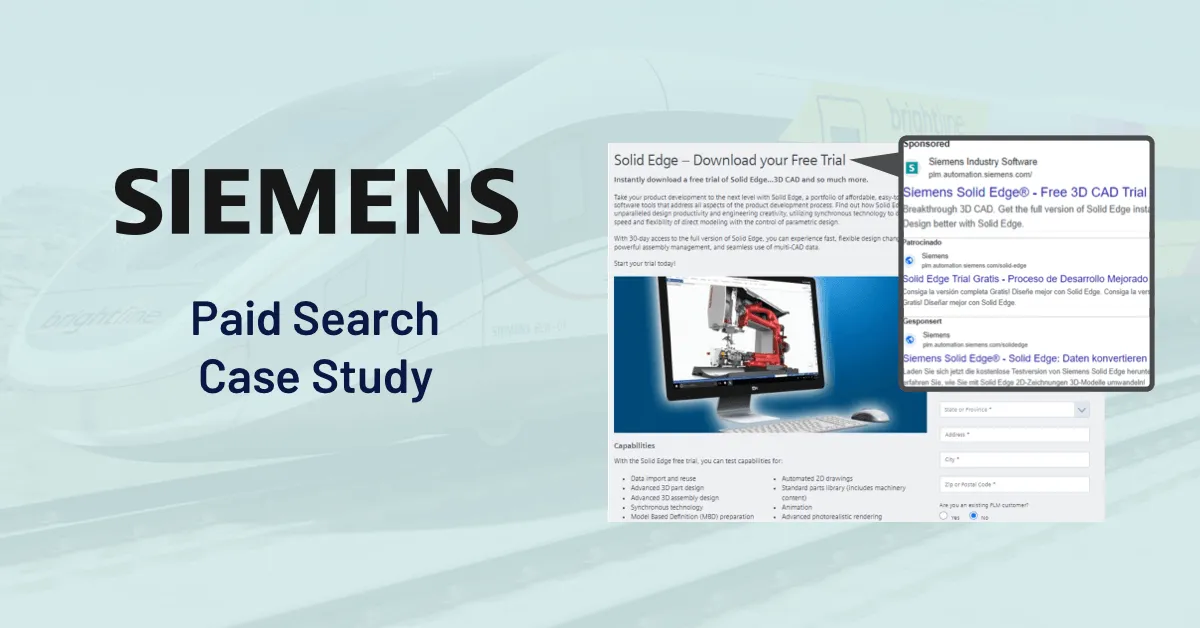Paid Search Optimization

Improving Conversions Through Paid Search Optimization
Paid search campaigns – aka search engine marketing (SEM) and pay-per-click advertising – are one of the most effective and cost-efficient ways to reach and convert potential buyers. After all, what other channel puts you right in front of your prospect at the very moment they are searching for the products/services you offer – and doesn’t charge you unless they take action by clicking on your ad?
Yet for all its potential, paid search engine marketing can be notoriously complex to manage and frustratingly difficult to master. Digital marketers are often stymied by keywords that don’t gain traction with users, ads that fail to meet objectives for click-through-rates (CTRs), and metrics that don’t show sufficient conversions, let alone ROI.
Paid search optimization is the key to making SEM campaigns deliver everything you expect from them and more. One of the strongest advantages of paid search as a marketing channel is the ease with which you can test and measure results. Using performance data to continually adjust all the elements of an SEM campaign, paid search optimization lets you sharpen your efforts and achieve the results you need.
Overdrive, a leading full-service digital marketing and PPC agency, provides comprehensive services for search management and paid search optimization to help organizations transform struggling SEM campaigns into powerhouse vehicles for converting new customers and keeping the sales pipeline full.
Search Engine Marketing Map
Wrap your head around Search Marketing with the latest Search Marketing Map. Updated with 26 categories that account for 281 of the best sites, tools and resources of today. The Search Marketing Map helps marketers quickly become better marketers.
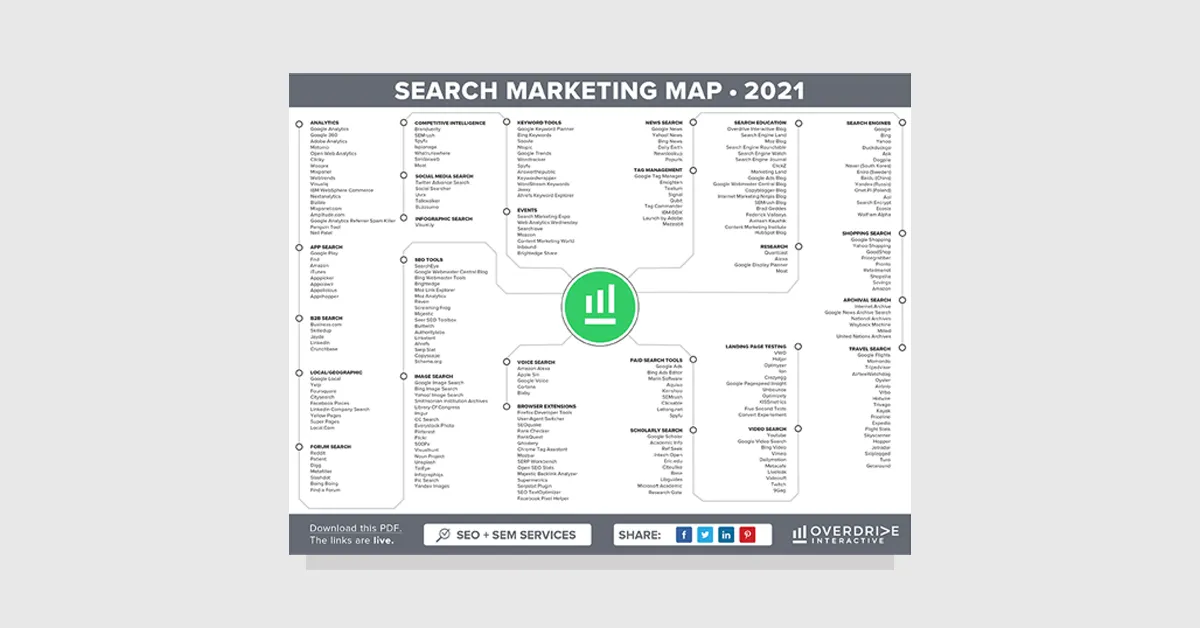
Review: How Paid Search Works
Before we discuss techniques for paid search optimization, let’s quickly review the elements of SEM campaigns that can be optimized for better performance.
- Keywords – the terms that buyers/prospects enter into a search engine and that advertisers select when determining which users they want to target with ads. Search engine platforms allow advertisers to select how closely the user’s search terms must match the advertiser’s keywords – from exact matches to very broad matches – before the user will see an ad.
- Ads - the copy that appears at the top, bottom or side of search engine results pages (SERPs) when a user performs a search.
- Landing pages - the webpage where a user is directed once they click on an ad. Landing pages contain copy about the product/service/offer and a call-to-action that enables the user to take the next step in the engagement/buying process./li>
- Bids – the amount of money an advertiser is willing to pay if a user clicks on an ad related to a specific keyword.
- Ad rank - the formula that a search engine uses to determine which ads appear on a SERP when a user searches for a certain term. Ad rank is based both on the highest bid and on a Quality Score that is determined by the relevance of the ad to the user’s search and the quality of the ad and associated landing page.
- Targeting – the options that an advertiser has for reaching a user based on demographics, geography, day/time of the search, and the device on which the user is searching.
Search Engine Marketing Map
Learn how you can afford to dominate the search engine results for all your keyword terms and maximize conversions while maintaining quality.
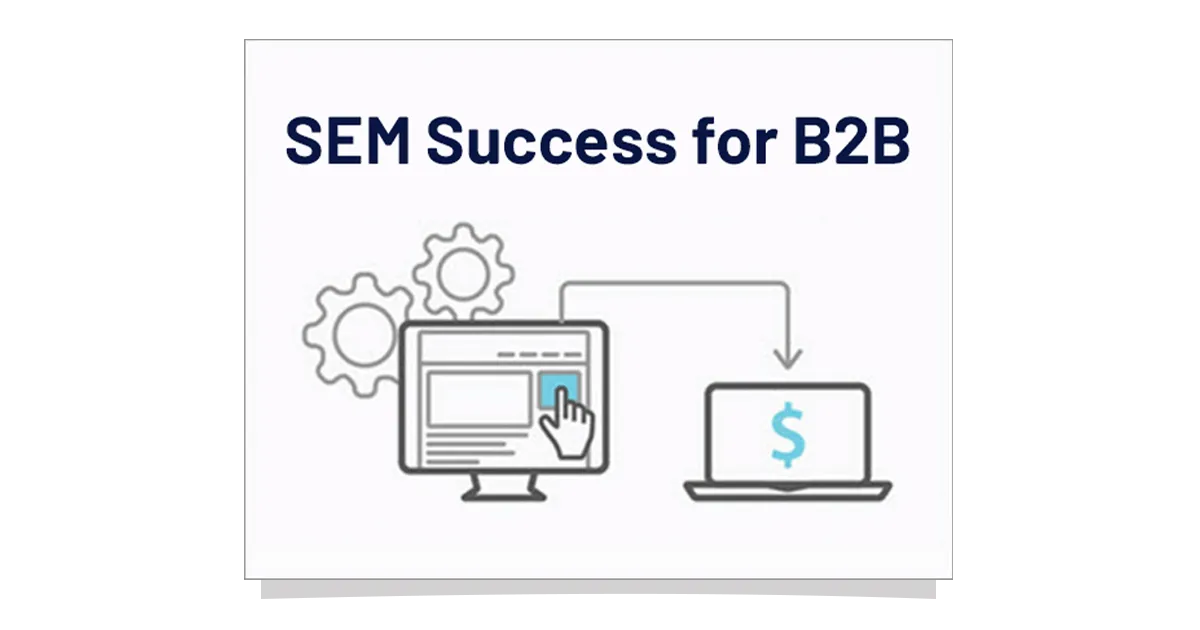
Where to Start with Paid Search Optimization
When conducting paid search campaigns, reports and analytics will provide you with a wealth of information and metrics about the effectiveness of the campaign. Armed with this data, you can quickly identify baseline performance for each element of your campaign and begin to test each component to see what changes yield greater results.
At Overdrive, our paid search optimization techniques include:
- Optimizing keywords
- Pause underperforming keywords to focus more resources on keywords that are delivering higher results.
- Revise match types – if broad matches are resulting in high cost-per-click but low conversions, try using exact matches instead.
- Add additional relevant keywords, testing a performance against initial keyword selection.
- Reallocate budgets to higher performing keywords and keyword groups.
- Adjust bids to increase the number of impressions.
- Use negative keywords – words that are part of a search and that identify users who are NOT ideal targets.
- Optimizing ads
- Pause underperforming ads and allocate more budget to ads that are gaining more clicks.
- Test ad copy, experimenting with choice of words, line breaks, capitalization, calls-to-action, and URLs to see what copy works best.
- Test use of ad extensions – including site links, callouts, call buttons, location listings, reviews, consumer ratings, previous visits, seller ratings, social media information, and dynamic structured snippets – to see which extensions garner more clicks.
- Test offers to discover which offers resonate more with potential buyers.
- Improve Quality Score by ensuring that keywords, ads, offers, and landing pages are relevant and compelling to users.
- Optimizing targeting
- Modifying dayparts – experiment with the days and/or times of day that ads appear to users.
- Adjusting geography – narrow or expand the locations in which ads may appear.
- Modifying devices – restrict ads to appearing only on devices that show higher clicks and conversions.
Demand Gen Instrastructure
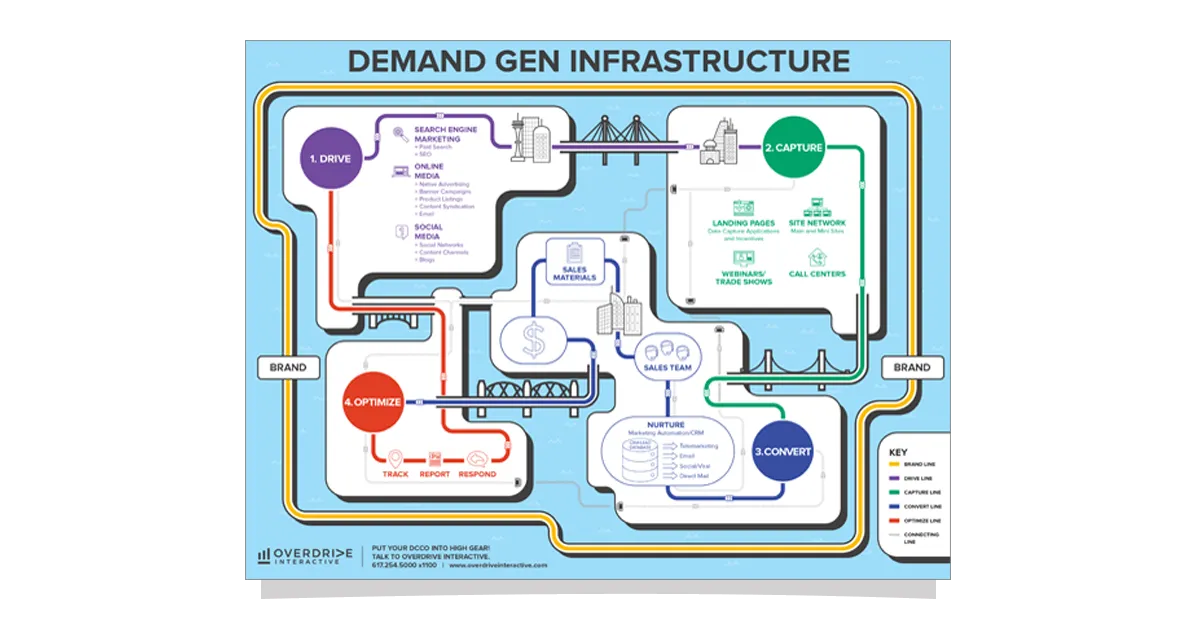
Discover DCCO: Drive. Capture. Convert. Optimize – Overdrive’s four-step approach to demand generation. This four-part infographic will help you to visualize the tactics and technologies you need to drive traffic, capture leads, nurture prospects, and optimize for ever-increasing ROI.
Paid Search Optimization Tip #15: Landing Pages Deliver Results
Landing pages are a huge part of paid search optimization. Because the landing page is the place where users take the next step in the buying journey (or not), making sure that every landing page element is optimized for conversion can help to significantly increase performance.
Paid search optimization techniques for landing pages include revisions that incorporate these directives:
- Be relevant – the content must pay off the expectation/promise established in the ad that leads to the landing page. If it doesn’t, users will be confused, annoyed, and unlikely to convert.
- Make CTAs clear – ensure that all copy, graphics, offers, and links direct the user to perform one critical action that leads to conversion. Avoid multiple calls-to-action and be sure that the CTA and information about the offer appear “above the fold” so the user doesn’t have to scroll down to find them
- Go light on form fields – require users to enter the minimum amount of information you require, otherwise they may decide the risk to their privacy is too great.
- Use video – landing pages with video increase conversions by up to 86%.
- Be mobile friendly – effective paid search optimization pays special attention to the user experience on mobile phones and tablets, as buyers increasingly use these devices for search.
- Go easy on copy and visuals – less is more on landing pages. You only need sufficient copy and graphics to pique the user’s interest and get them to click on the CTA.
Optimizing the Whole Customer Journey
Lift the Performance of all the Digital Components Powering your Customer Journey. This deck and video break down the essential ingredients that take a prospect from impression to sale and lists tactics that you can start employing today to improve campaign performance and sales velocity.
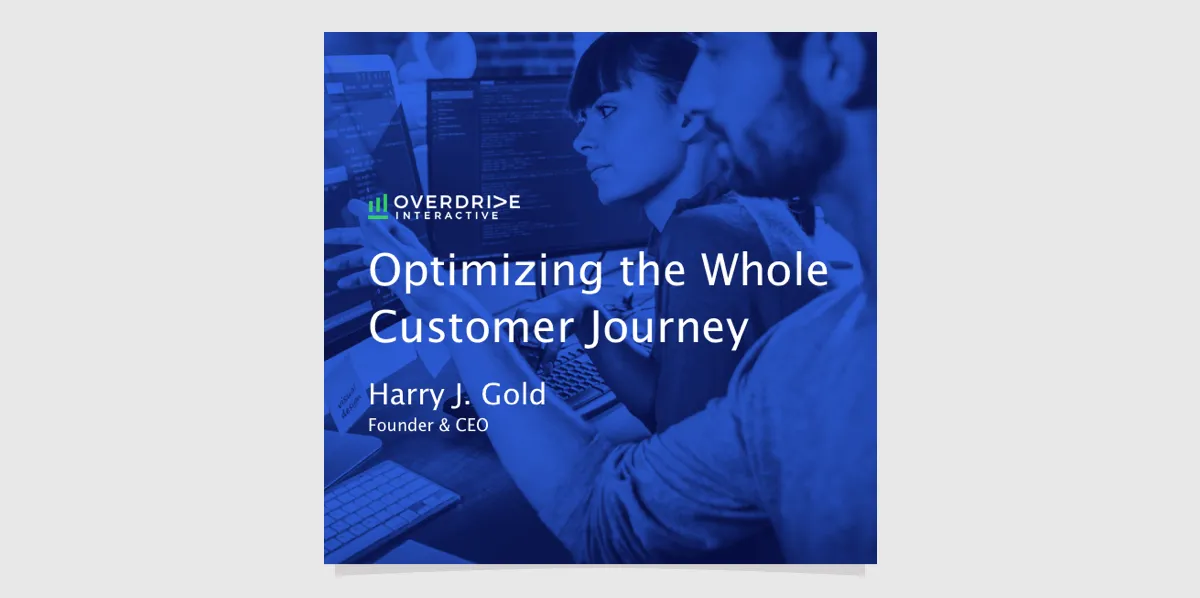
FAQ
Paid search optimization is the task of refining strategy and revising elements of a paid search campaign based on data that shows how well keywords, ads, offers, and landing pages are performing.
A paid search specialist provides services and assistance at any point in a paid search campaign, from strategy and planning to selection of keywords and from management of campaigns to tracking, reporting and analytics. A paid search specialist will typically have extensive experience, insight, and expertise in developing and executing a paid search campaign, enabling companies to augment their in-house capabilities with an outside resource.
Paid search optimization begins with data and metrics that show how well keywords and ads are performing, which offers are resonating with central buyers, and how effective landing pages are at converting visitors to buyers. With this data, advertisers can test each aspect of a paid search campaign to see which keywords, ads, offers, and landing pages perform most effectively.
Improving ROI on an SEM campaign is a constant effort in paid search optimization. By monitoring metrics such as number of impressions, clicks, and conversions and efficiencies such as click-through rates, cost-per-click, conversion rate, and cost-per-conversion, advertisers can establish a baseline performance against which all successive efforts can be measured. Every element of a paid search campaign – from keyword selection and keyword match to ad copy and landing page copy to offers and calls-to-action – can be tested and optimized to improve results and increase return.




